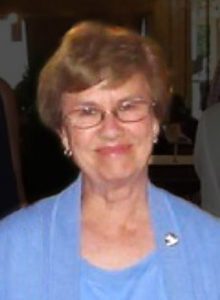
History can be so much fun! Indulge me, please.
I watched as Graceland University’s Men’s Basketball Team made history by winning the 2018 NAIA Division I National Championship. The history was not in the fact that they won in overtime by sinking a three-point shot just as the final buzzer sounded, a fairy-tale win. The history is that they are the first basketball team in Iowa on any level to win a national title in 81 years!
On a more serious note, Graceland University also hosts an annual History Day during which young students across Iowa, from elementary through high school, present their history projects, the theme of which this year is Conflict and Compromise. Recently Graceland was hosting the regional contest to select students who would continue on to state. Joshua Miller-Shawnee, a JWHA member and the new director of the Graceland F.M. Smith Library, thinks I’m a historian, an idea I should discourage. Fortunately, I was partnered with a Graceland student who is a knowledgeable history major, thank goodness, as I had not done this before. With her help I think we served the students well in our evaluations of their exhibits, their process papers, their annotated bibliographies and their oral discussions. Because they took their work seriously, I also learned some history from them.
The value of learning and caring about history has been on my mind since beginning my tenure as the Program Chair and President of the John Whitmer Historical Association. I have taken a leave of absence from being the intake interviewer for Lamoni citizens in need of emergency financial assistance. I would listen to their stories and their requests on behalf of the Lamoni Food Pantry’s Emergency Relief Fund and report to a tiny committee that would make the final decision. My father would certainly have told me it is important volunteer work in Lamoni, a small town in Iowa’s poorest county.
In the beginning of my JWHA service I felt guilty, leaving an activity which could make a big difference in the lives of people experiencing real hardships for the opportunity to devote my time to an organization that has always been only fun for me. I know history is important, but is it THAT important? Then I listened to sixth graders as they told in detail Squanto’s experience of sharing with the pale-faced immigrants to this new world–and then compared it to how the United States is treating its dark-faced immigrants today. Seventh graders whose exhibit was on the experience of Jews at Auschwitz related their topic to how our society even today treats people abominably who are a bit different from the rest of us. Contemporary hate groups abound. The conflicts were easy to identify; the compromises were more difficult to find. But find them in history we must so as to use those lessons to work for peace.
So, to all of you, thank you for giving me the opportunity to learn further the implications of studying history.
— Sherry Morain, President

